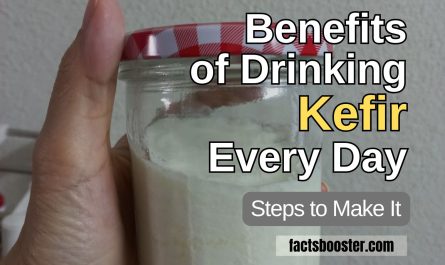What is the best vitamin to maintain our good health? I understand that maintaining my health hinges on a balance of nutrients, and I’m keenly aware of the role vitamins play in this equation. Vitamins are my body’s building blocks, supporting everything from eye health to the immune response. They are the foundation that keeps me standing strong against the onslaught of daily stressors and environmental factors. A well-rounded diet dense with nutrient-rich foods is the cornerstone of my daily health, but I often turn to supplements for any nutritional gaps.
Integrating a mix of fresh fruits, vegetables, whole grains, and lean proteins into my meals provides me with a symphony of vitamins necessary for my body’s complex systems. But despite my best efforts, there are times I fall short. This is where tailored supplements step in, complementing my diet to ensure I reach that pinnacle of health and vitality. I make conscious choices to ensure these two elements work in tandem, shaping a lifestyle conducive to sustained well-being.
Read more:
The Essentials of Vitamin
Vitamins serve as organic compounds that our bodies need in limited amounts for a variety of biochemical functions. I see them not as optional extras, but as integral gear cogs in the machinery of our metabolism. They aid in the conversion of food into fuel and energy, heal wounds, bolster your immune system, shore up bones, and perform other tasks integral to your survival.

Best Vitamins for Optimal Health
Maintaining daily health requires a thoughtful approach to what goes into our bodies. I prioritize a range of vitamins for their respective roles and benefits. Vitamin C, a formidable antioxidant, supports the immune system and tissue repair. Citrus fruits and leafy greens are excellent sources.
Next, Vitamin D is key for bone strength and calcium absorption. Nicknamed the ‘sunshine vitamin’, it’s produced when skin is exposed to sunlight, but also found in fortified foods and fish. Vitamin E offers additional antioxidant protection, particularly for skin and eyes, commonly sourced from nuts and seeds.
The various B-complex vitamins work in concert to fuel metabolism and energy production. We find these in whole grains, meats, and various vegetables. Notably, Vitamin B12 and folic acid support nerve function and red blood cell formation, key for vegans and pregnant women to get enough.
To support vision and immune function, Vitamin A is indispensable. Carrots, sweet potatoes, and dairy products are rich in this nutrient. Lastly, the incorporation of Omega-3 fatty acids into our diet, through fish or flaxseeds, fosters heart health and cognitive function. Combined, these vitamins form the cornerstone of a plan ensuring my body gets what it needs to thrive.
Vitamin-Rich Foods vs. Supplements
I often find myself weighing the benefits of consuming vitamins through food or opting for supplements. Allow me to share insights on this matter, which might aid you in making an informed decision.
Securing vitamins from food offers the advantage of receiving a wholesome package of nutrients, complete with dietary fiber and other beneficial compounds. For instance, an orange not only delivers vitamin C but also phytonutrients that supplements can’t provide. Foods naturally rich in vitamins often come with a balance that aids in optimal absorption and utilization by the body.
On the flip side, supplements serve as a convenient means to fill nutritional gaps in your diet, particularly when it’s not feasible to consume certain vitamin-rich foods. They can play a significant role for individuals with specific dietary requirements or health conditions limiting their vitamin intake. However, relying solely on supplements can lead to imbalances or excessive intake, potentially causing more harm than good.
To choose wisely between food sources and supplements, first reflect on your diet to identify any nutritional shortfalls. Prioritize a varied and balanced diet as the foundation of your vitamin intake. Consult a healthcare professional to determine if supplements are necessary for your case, and target those that address your specific needs. Remember, supplements should complement, not replace, a nutritious diet.
Customizing Your Vitamin Intake
Tailoring your vitamin intake to suit your personal needs can ensure you receive the right nutrients for optimal health. Start by examining your diet, identifying which vitamins you may already receive in ample quantities. If you prefer plant-based meals, for instance, you might be getting plenty of vitamin C but could lack vitamin B12 or omega-3 fatty acids found in fish. Lifestyle plays a significant role; those with limited sun exposure may require a vitamin D supplement.
Consider your age as well: Children and teens have different nutritional needs compared to adults. Mature individuals often need higher amounts of calcium and vitamins D and B12. Gender-specific vitamins like iron are especially important for women of childbearing age to support their unique physiological needs. Before starting any supplement, I always suggest consulting healthcare providers; they can offer valuable insights tailored to your health history.
Lifestyle choices, such as smoking or drinking alcohol, can impact nutrient levels, necessitating adjustments in vitamin intake. Remember, balance is key; taking high doses of single vitamins can disrupt overall nutrient balance and may even cause health issues. Pay attention to labels on multivitamins to avoid exceeding recommended daily allowances. Regular blood work can also guide you in adjusting vitamin dosages to avoid deficiencies or excesses.
Safety and Recommendations
I need to emphasize the significance of safety in supplement use. While vitamins play a pivotal role in wellness, an excess can lead to hypervitaminosis, which is potentially harmful. I conduct research on the recommended daily allowances for each vitamin to keep my intake in check. This prevents excessive consumption that might otherwise go unnoticed. It’s critical for me to read labels carefully and follow the dosages as instructed when taking vitamin supplements.
I make it a rule to consult with healthcare providers before starting any new supplement. This is especially important if I’m already taking other medications or have underlying health conditions. I’m aware that some vitamins can interfere with medications, so these professional consultations can prevent adverse interactions.
It’s also my responsibility to choose high-quality supplements. I look for brands that are third-party tested and have certifications that assure their purity and potency. This transparency helps me trust that what I’m ingesting is safe and beneficial for my body. I avoid falling for the allure of mega-doses despite promises of rapid health benefits because the science behind such claims is often questionable; moderation is key.
In the case nutrition deficits occur, I prioritize natural food sources over supplements whenever possible. This ensures that I get my vitamins within a complex matrix of nutrients that work synergistically. I reserve supplements for when I’m unable to meet my vitamin needs through diet alone. Lastly, I never disregard the potential for allergies or sensitivities, and all signs of adverse reactions prompt me to cease intake and seek medical counsel.
Nourishing Your Body and Soul
Nourishing our bodies adequately is a key step in living a fulfilling and energetic life. Proper vitamin intake supports a multitude of bodily functions, from bolstering the immune system to ensuring bone strength. This journey towards a healthier, vitamin-enriched lifestyle must be deliberate and thoughtful. Embarking on this path can make all the difference in daily vitality and long-term well-being.
Eating a variety of nutrient-dense foods is the surest way to meet your vitamin needs. Leafy greens, fruits, and fish are indispensable, providing an array of vitamins and nutrients. For times when your diet may fall short, supplements can fill in the gaps. Prioritize vitamins such as C, D, and the B-complex to aid your body’s defense mechanisms, while E and omega-3 fatty acids combat oxidative stress.
Start by assessing your diet and lifestyle; identify possible deficiencies and adjust your meals accordingly. If necessary, select high-quality supplements to complement your intake. Remember that balance and moderation are your allies in this pursuit. Consistent, mindful decisions about your diet can lead to significant benefits for your health and vitality. Take steps today that your future self will thank you for, and cherish the increased energy and wellness that come with a body well-nourished.
Each of the vitamins plays a unique role in the body. For example, vitamin C bolsters the immune system and helps your body absorb iron, while vitamin D partners with calcium to protect bone integrity. Vitamin E acts as an antioxidant, warding off molecular assaults from free radicals, and the B-complex vitamins—including vitamin B12 and folic acid—are pivotal in metabolic activities and red blood cell production. My advice is to think of these nutrients as a team working together to keep you at your peak.
Bottom Line
Without a sufficient vitamin supply, you might find yourself wrestling with health deficits. The spectrum of ailments can range from fatigue and weakened immunity to serious long-term health issues like osteoporosis and heart disease. Hence, incorporating a mix of these vital nutrients into your daily diet is a strategy worth employing to foster a fortified, disease-resistant physique.
References:
1. Nutrients., 2017 Nov 3, “Vitamin C and Immune Function” (1)
2. Subcell Biochem., 2018, “B Vitamins and Ageing” (2)
3. Nutrients., 2020 Jul 15, “Immunologic Effects of Vitamin D on Human Health and Disease” (3)
4. Sultan Qaboos Univ Med J v.14(2); 2014 May, “The Role of Vitamin E in Human Health and Some Diseases” (4)


